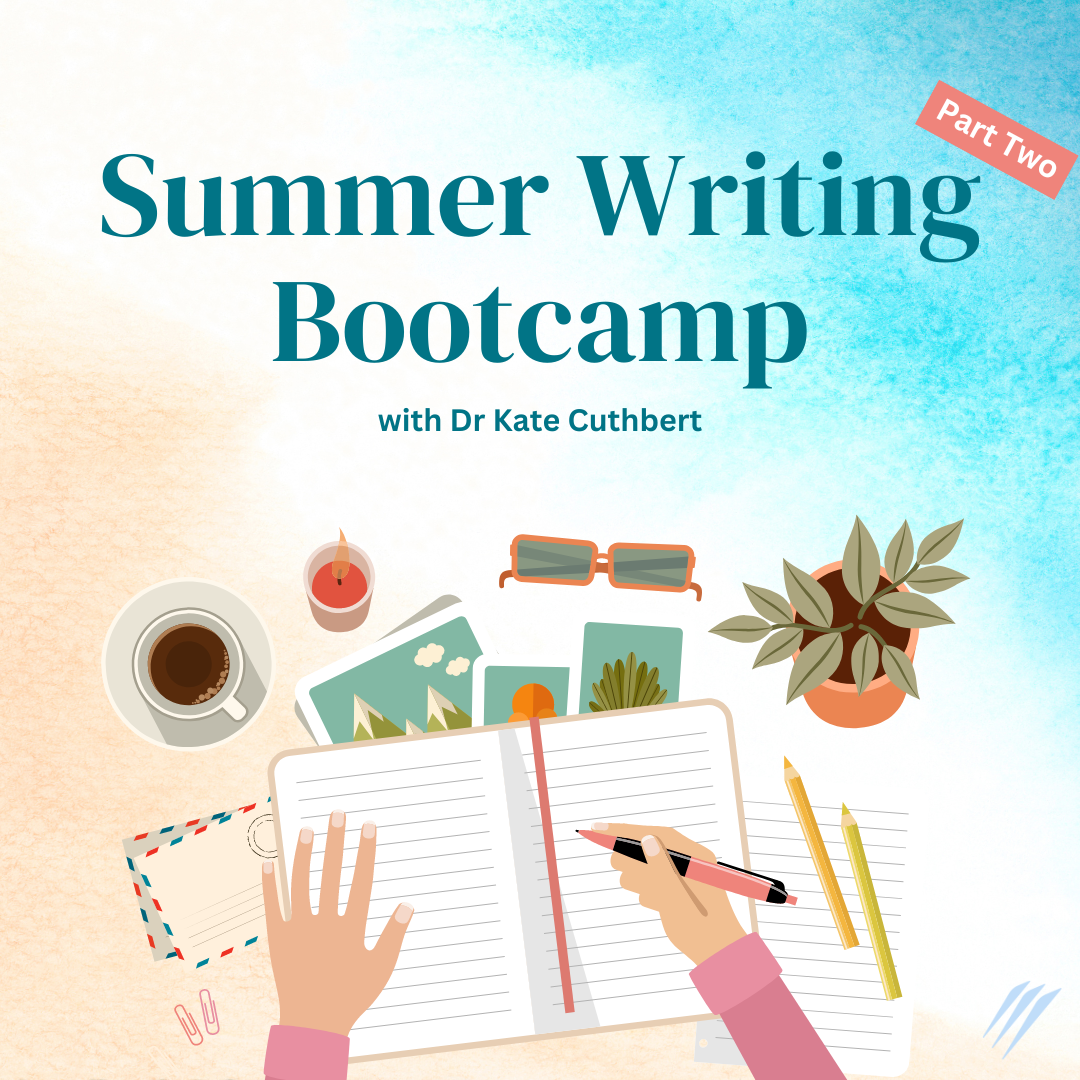
Summer writing bootcamp: verbs
Pantera Press
Want to write your novel in 2024? Get started with some tips from Pantera Press editorial director, Dr. Kate Cuthbert.
5 Things to Know About Using Verbs
Verbs are one of the most useful tools in your writer’s toolbox, but many writers don’t make full use of the varied ways a verb can really enhance your writing. So here are five things to know about this crucial, but often over-looked part of speech.
- Be specific
They walked quickly down the hall. They strode down the hall. They scurried down the hall. They dashed down the hall. They bolted down the hall.
Specificity often comes up in writing advice, and for good reason. As writers, you are creating something out of nothing, and everything is in the details. So make sure you’re using the right verb. There is a lot of difference between ‘walked quickly’ and ‘scurried’, and between ‘scurried’ and ‘bolted’. The correct, specific verb can immediately conjure up the correct, specific image you are trying to convey.
- Shake it up
jump to conclusions, drown in paperwork, scratch the surface
There are a lot of idioms, sayings, and clichés that get trotted out in everyday language, but what if, instead, we said they ambled out? Or loped out? Or were dragged out? Switching up an expected verb with an unfamiliar one can jolt your reader out of complacency and breath fresh air into a scene. What if, instead of falling in love, your characters tumbled into love? Or plunged into love? Or toppled into love? By reconsidering the verbs in commonplace sayings, you can create new imagery and add a spark to your story.
- Dialogue tags
The child’s eyes filled with tears. He leaned back in his chair. She rubbed at her nose.
Dialogue can be a fantastic way to build backstory, develop characters, show relationships, and add interest into a story. But dialogue tags can become unwieldy, repetitive, and interrupt the flow of a scene. A useful way to break up long dialogue sequences is by adding in some action: after all, communication is 90% body language. Why not use your verbs to create some movement?
- It’s OK to use ‘said’
- He choked out. She muttered. They whispered. The elf intoned.
Speaking of dialogue tags, this is one area where specificity can actually be detrimental. Readers become very adept at not seeing words that get repeated often. This glossing over works in your favour because it means readers are sinking into your story and not pay attention to your writing. But too many dialogue tags in a row can actually mess with this disassociation and pull your reader back out of their imaginative state into becoming aware that they are reading. One or two can add to your work, but consider mixing up dialogue tags with action instead, to keep readers right where you want them.
- Verb tenses
If only he had been sleeping. She was trying for an hour. They had driven four hours.
As with most languages, English has a number of verb tenses that we use to communicate things that have happened, things that are happening, and things that will happen. But in writing, often times these constructions can be technically correct but unwieldy and complicated in practice. Most fiction titles (and many non-fiction titles) are written in the past tense. Now stories work along a time continuum, and we are used to using simple past (that is, verbs with the normal -ed ending) for the things that have happened closes to the present, and past perfect (that is, verbs that use ‘had’ and ‘had been’) for things that happened before that. However, in most cases, the simple past (that is the normal -ed ending) is the right choice for telling your story, even if it’s not technically grammatically correct. Readers are pretty savvy and they will be able to understand that time continuum most of the time, and you can avoid cumbersome verb construction.
